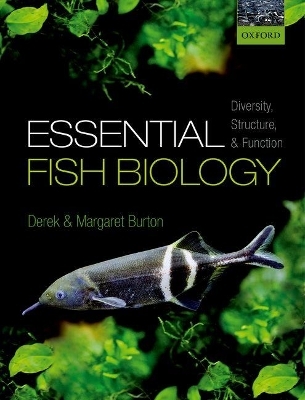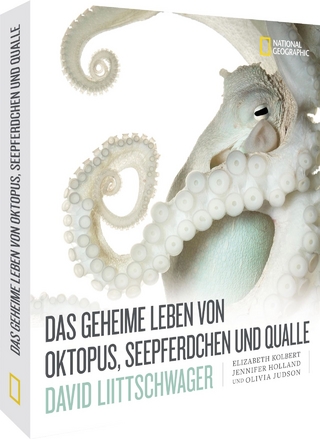
Essential Fish Biology
Oxford University Press (Verlag)
978-0-19-878556-9 (ISBN)
- Titel z.Zt. nicht lieferbar
- Versandkostenfrei
- Auch auf Rechnung
- Artikel merken
Essential Fish Biology provides an introductory overview of the functional biology of fish and how this may be affected by the widely contrasting habitat conditions within the aquatic environment. It describes the recent advances in comparative animal physiology which have greatly influenced our understanding of fish function as well as generating questions that have yet to be resolved.
Fish taxa represent the largest number of vertebrates, with over 25,000 extant species. However, much of our knowledge, apart from taxonomy and habitat descriptions, has been based on relatively few of them , usually those which live in fresh water and/or are of commercial interest. Unfortunately there has also been a tendency to base our interpretation of fish physiology on that of mammalian systems, as well as to rely on a few type species of fish. This accessible textbook will redress the balance by using examples of fish from a wide range of species and habitats, emphasizing diversity as well as recognizing shared attributes with other vertebrates.
Professor Emeritus, Derek Burton has always been interested in how things (and animals) function. With a B.Sc. (Hons) in Zoology from the University of Wales and a Ph.D from the University of London (UK) Derek transferred his base to Newfoundland (Canada) where he has continued his investigations in fish physiology. He has taught a wide variety of courses including introductory biology, cell biology, vertebrate biology, comparative animal physiology, fish biology and graduate courses. Major interests are fish neurobiology and colour change; the North Atlantic providing a rich source of exciting problems to study. Professor Emeritus, Margaret Burton studied zoology and comparative animal physiology at the University of London (UK) and initially focussed on invertebrates with a B.Sc. (Hons) and a Ph.D. On relocating to Canada, Margaret became involved in fish research, including work on both freshwater and marine species, concentrating on hormones. The emphasis shifted to fish reproduction which presented many fascinating areas including the ability of at least some fish species to switch off reproduction and resume it subsequently. Teaching involved a variety of introductory and more advanced courses as well as work with graduates.
1: Fish diversity
2: The Integument
3: The skeleton, support and movement
4: Food procurement and processing
5: Transport: blood and circulation
6: Gas exchange
7: Metabolism, homeostasis and growth
8: Excretion
9: Reproduction
10: Integration and control: hormones
11: Integration and control: the nervous system
12: Perception and sensation
13: Special adaptations
14: Fish behaviour
15: Obtaining information
16: Conservation and fish function
| Erscheinungsdatum | 07.10.2017 |
|---|---|
| Zusatzinfo | Over 120 illustrations |
| Verlagsort | Oxford |
| Sprache | englisch |
| Maße | 197 x 247 mm |
| Gewicht | 1006 g |
| Themenwelt | Naturwissenschaften ► Biologie ► Limnologie / Meeresbiologie |
| Naturwissenschaften ► Biologie ► Zoologie | |
| ISBN-10 | 0-19-878556-9 / 0198785569 |
| ISBN-13 | 978-0-19-878556-9 / 9780198785569 |
| Zustand | Neuware |
| Haben Sie eine Frage zum Produkt? |
aus dem Bereich


